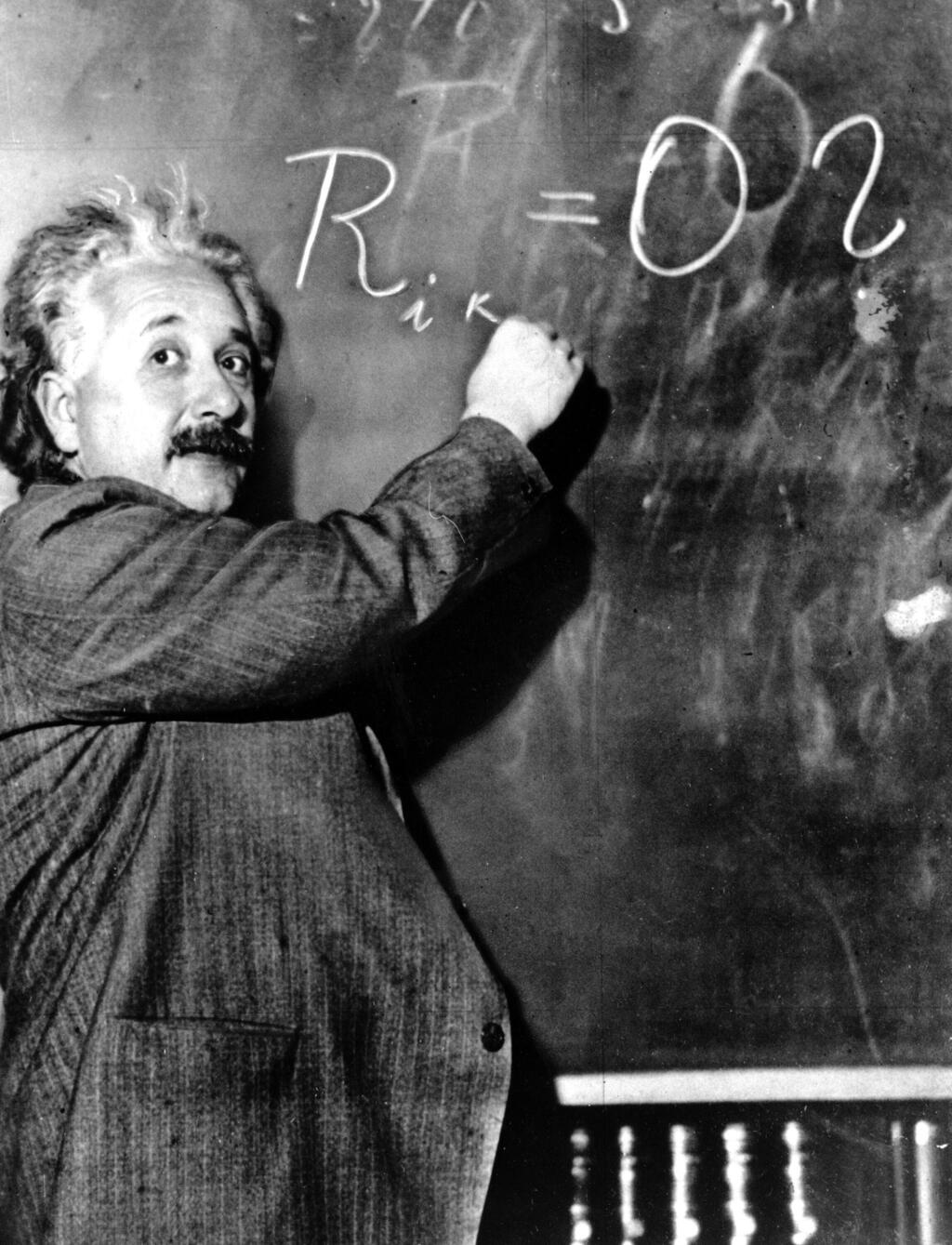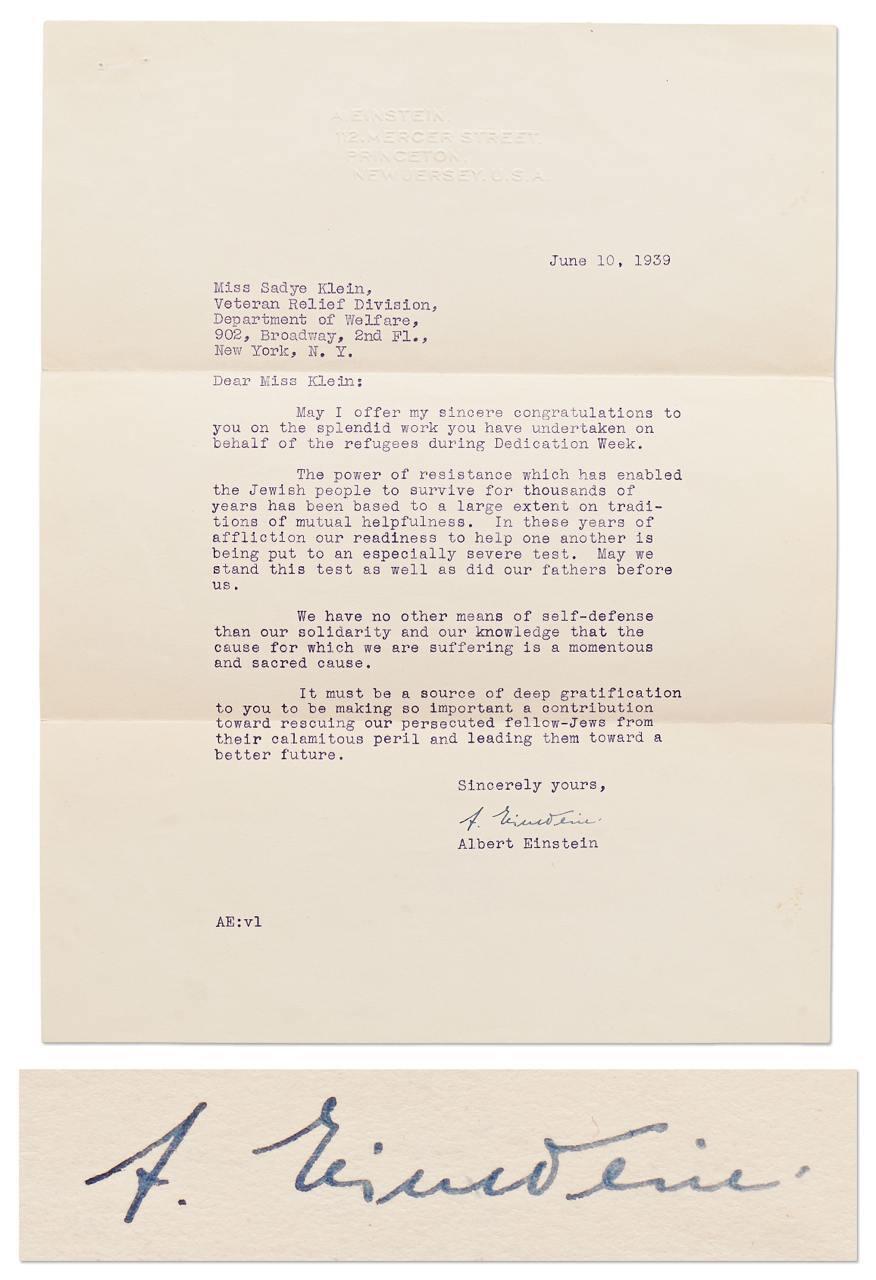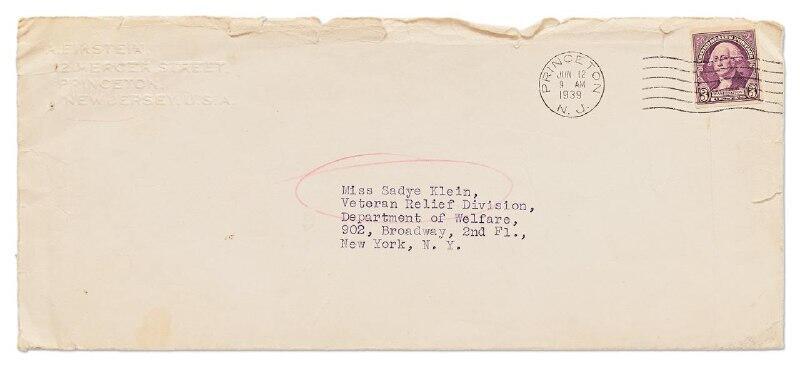Getting your Trinity Audio player ready...
A 1939 letter from Albert Einstein, urging a Jewish official in New York's Department of Welfare to save Jewish refugees from the Holocaust in Europe, is being auctioned this week in Los Angeles.
The letter, dated June 10, 1939, is written on Einstein's personal stationery from Princeton University and addressed to Miss Sadye Klein from the Department of Welfare's Veteran Relief Division, who worked with refugees in New York.
"The power of resistance which has enabled the Jewish people to survive for thousands of years has been to a large extent on traditions of mutual helpfulness," wrote the Nobel laureate. "In these years of affliction, our readiness to help one another is being put to an especially severe test. May we stand this test as well as did our fathers before us."
Einstein further emphasized the importance of solidarity and the sacredness of their cause. "We have no other means of self-defense than our solidarity, and the knowledge that the cause for which we are suffering is a momentous and sacred one."
He concluded the letter with a note of gratitude. "It must be a source of deep gratification to you to be making so important a contribution toward rescuing our persecuted fellow-Jews from their calamitous peril and leading them toward a better future."
The letter, along with the original envelope sent by Einstein, is being auctioned by Nate D. Sanders Auctions with an initial bid of $20,000. A similar letter by Einstein was sold five years ago for nearly $135,000.
Einstein reiterated these sentiments in several other letters appealing for aid to Jewish refugees, addressing prominent Jewish figures across the United States, including notable Hollywood talent agent William Morris and senior figures in the department store chain Arnold Constable and Co. A week earlier, Einstein expressed similar thoughts at the Jewish-Palestine Pavilion at the World's Fair in New York.
Einstein, the renowned Jewish German physicist best known for developing the theory of relativity, emigrated to the U.S. in 1933 and became a resident scholar at Princeton University. During this period, most American Ivy League universities had few, if any, Jewish faculty or students due to Jewish quotas.
In recent years, some of Einstein's possessions have fetched high prices at public auctions. Last year, a rare letter he wrote about the creation of the world was auctioned in Pennsylvania with an initial bid of $125,000. In the letter, written in German from Brooklyn, New York, on April 11, 1950, Einstein stated that a scientist can't believe in Genesis's story of the creation of the world because science "replaces and supersedes" such religious concepts.
Previously, Einstein handed out two notes to a messenger who approached him at a hotel in Japan. His "happiness theory" notes were sold at an auction in Jerusalem for $1.3 million. One note says that "a calm and modest life brings more happiness than the pursuit of success, which is combined with constant restlessness." The second note simply says: "Where there's a will, there's a way."
One account suggests the messenger declined a tip, a common practice in Japan, while another claims Einstein had little money to offer. Regardless, Einstein didn't want to leave the messenger empty-handed, so he wrote him two notes in German.





